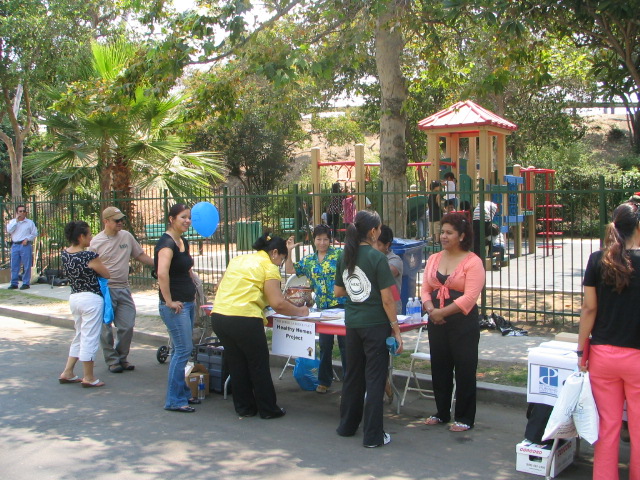Jesus began to say to them, “See that no one deceives you. Many will come in my name saying, ‘I am he,’ and they will deceive many. (Mark 13: 5-6)
These words of Jesus continually come to my mind during this (seemingly forever) campaign season. It is a particularly decisive campaign, and the result of this seems to be more and more people hold up this candidate or that candidate that is the savior. As I am in Pennsylvania, a battle ground state, even the down ballet campaigns have their air of apocalyptic doom on one side and the coming messiah on the other.
I listen to podcasts, read the paper, and watch television shows on the campaign, and, when I do, I feel the high stakes. I feel what I believe and what I hope for will be thwarted should the other side win. I’m driven by fear and fear despair.
Yet, I finish listening, reading, and watching, I have to go back to my life. I have kids in school and sports. I have a marriage to work at. I have students in my classes for whom I’m responsible and for whom I care about. I chair my academic department, coach pee-wee soccer, coordinate popcorn for the Cub Scouts and serve on parish council. And, I’m not alone. I look around at my community and see parents working jobs, managing kids, taking care of elderly relatives, volunteering to coach sports or help out at scouts or work the parish festival. We commiserate at the bus stop, on the sidelines, and during the school’s open house.
In these moments, my apocalyptic fervor diminishes. We never bring up the campaign because we know that, if we did, it could divide us, stopping our common work and weaken our casual but important relationships.
I think that this work in schools, families, and other social institutions is some of our most important political work. Engaging with other people, listening to each other, and cooperating to solve a problem is essential, if anything is going to work. It is messy and unstable, but the possibility of better outcomes is higher. In discussing his book, The Wealth of Humans: Work, Power, and Status in the Twenty-First Century, Ryan Avent indicates the importance of these social bonds, saying,
. . . . a lot of the sort of value-creating activities in the economy today involve what I call social capital. It basically means working with other people, and these cultures become very important. And so the people who are able to hear other people, had communicate with them well, and come up with new ideas will do well.
In her Hope for the Common Good, Julie Hanlon Rubio discusses the importance of these social relationships for society for a host of issues, including how to address systemic poverty. She writes, “Building trust with a community before serving the people within it is crucial.” If you do not do this, Rubio continues, you end up with a situation like the aid group “that built a concrete play area right in the middle of what had been the community’s soccer field. When it rains, the village center now floods, and on one plays soccer there anymore. All this the villagers could have told the aid group.”
To borrow a phrase, we need to generate fictive kinship: “the idea that groups of people can create familial bonds despite the fact that they are not related by either blood or marriage.” Jason Hines used the term to describe his sense that “many Black people do have fictive kinship with one another that causes us to feel these murders [the shooting of unarmed Black men by police] in a very visceral way. We mourn for our brothers and sisters who die in this way because of these bonds of fictive kinship.” I believe we need more of these fictive kinships in our lives. We need to work at them. Build them so that they do reach beyond our own families to our literal neighbors, and, in doing so, we start to generate communities that treat one another well and do what is good for one another. When we do this, we start to come together and solve problems in our work and in our communities.
We will still have divisions, but the movement of fictive kinship is toward either overcoming them or working together despite them. The schools, the office, the home, the team, the neighborhood, and the community, all need this to work well. Fictive kinship brings people together, whereas the apocalyptic despair divides us into camps fearing each other. Perhaps, this is why Jesus warned us not to be deceived by these false messiahs and end of times proclamations. Instead, the true messiah calls us to “love one another.” (John 13:34)






Jason – thanks for bringing “fictive kinship” to bear on the election. I find this helpful for thinking about our present moments, because what you describe about the apocalyptic aspects of the election are thoughts I’ve had as well. I have to keep reminding myself that the people who have the political signs in their yards (the signs I hate seeing) are also the people who do amazing medical care for kids, or who is the local librarian, or who offered me a ride home one day when it was pouring rain. It can be so hard to remember this when we’re focused on the “scorched earth” ideas that have become prominent in political cartooning and op eds.
Jason– I echo Jana – this is a very nice connection. But I wonder about how fictive kinship cuts both ways. I think the phenomenon of Trump has to do with a different sort of fictive kinship among people who feel excluded from the privileged discourse of the cosmopolitans. This ends up being a strange combination of empowering and destructive. Your comments made me wonder if fictive kinship and social capital are more or less synonyms, or if there are differences in the operating systems that might be indicated by each term. In any case, this is exactly the kind of question that needs further exploration, since it is a crucial connection between individualism and nation-state politics.
It also suggests that there is an important question here about the extent to which other groups are properly contextualized by Christian identity. My fear is that Trump versus Clinton actually is something more like the “American Christians” (read: German Christians) versus the cosmopolitan nones. That is, we’re getting closer to a politics underneath which there are no deeper commitments, and so becomes dominated by tribal fanatics whose #1 commitment is in fact to the political party/cause. I do not think this was the case with, say, Tip O’Neill and Ronald Reagan, even if neither of those men were particularly deep theologically!
David and Jana,
Thanks for the comments. David, I agree with you on the dangers of fictive kinship. They can form a closed group that defines itself by what it is not. They can suffer from — what your favorite theologian Lonergan calls — group bias. The key, I think, is what defines the group. Is it their love or fears? I see in the quote from Jesus that love should be what defines the group. I would add that I think that the form love takes in this world is one that figures out how to manage conflict or, in Christian terms, that seeks reconciliation, restoring right relationships. The “fictive” part for me is helpful in this because it suggests that we can imagine and so create more expansive bonds of friendship.